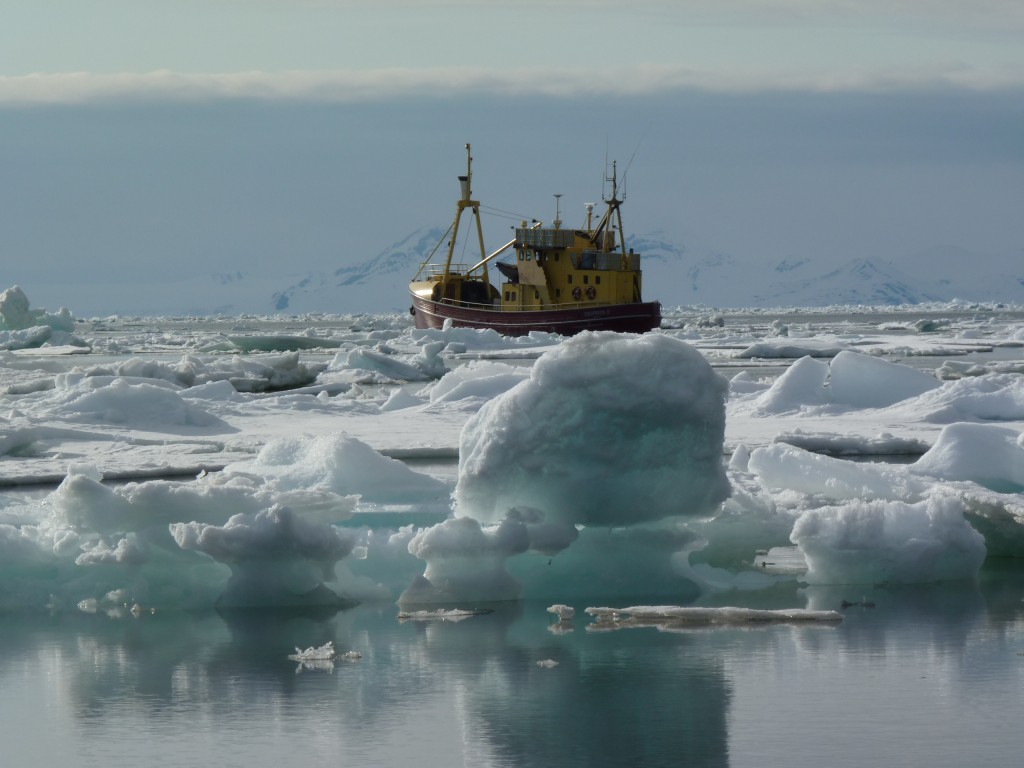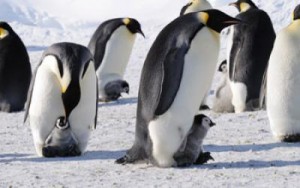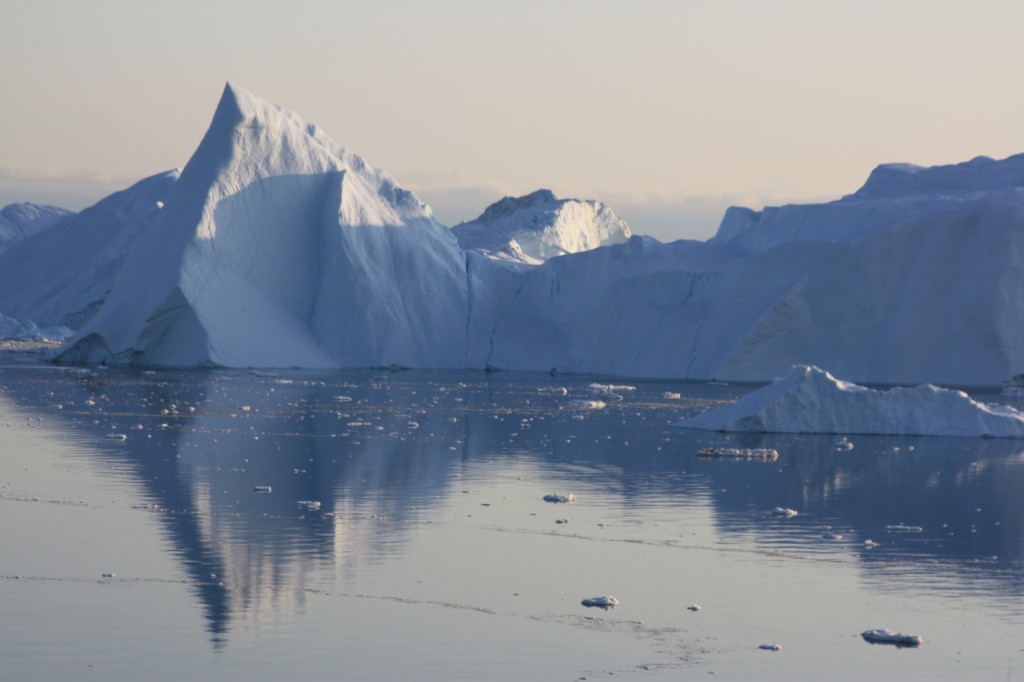Warm ocean currents are melting Antarctic ice
 Recent ice loss from Antarctica was mainly caused by warm ocean currents, according to a team of scientists led by British Antarctic Survey. In an article for the journal NATURE this week, they explain how they used new techniques to differentiate for the first time between the two known causes of melting ice shelves – warm ocean currents attacking from below and warm air melting from above. One worrying thing is that this means “we can lose an awful lot of ice to the sea without ever having summers warm enough to make the snow on top of the glaciers melt – the oceans can do all the work from below” says Dr. Hamish Pritchard from BAS, lead author of the report.
Recent ice loss from Antarctica was mainly caused by warm ocean currents, according to a team of scientists led by British Antarctic Survey. In an article for the journal NATURE this week, they explain how they used new techniques to differentiate for the first time between the two known causes of melting ice shelves – warm ocean currents attacking from below and warm air melting from above. One worrying thing is that this means “we can lose an awful lot of ice to the sea without ever having summers warm enough to make the snow on top of the glaciers melt – the oceans can do all the work from below” says Dr. Hamish Pritchard from BAS, lead author of the report.
The warm water melting the ice sheets is causing inland glaciers to speed up and discharge masses of ice into the sea. The reason the water is warming, is probably because of changes in wind patterns, caused in turn by changes in climate. This would mean “Antarctica’s glaciers are responding rapidly to a changing climate” says Pritchard.
Most of the ice shelves being melted by warm ocean currents are in West Antarctica. On the eastern Antarctic Peninsula the shelf thinning found by the study can be explained by warmer summer winds directly melting the snow on the ice shelves.
The results will help improve projections of future sea-level rise.
More here on the website of the British Antarctic Survey
Polar bears evolved earlier than previously thought

Polar bear genome shows they evolved much earlier than previously thought. Picture by Alan Wilson, www.naturepicturesonline.com
A team of scientists led by researchers from the German Biodiversity and Climate Research Centre (BiK-F) has found out that polar bears evolved as early as some 600,000 years ago. The study, published in the current issue of the journal “Science”, ( Nuclear Genomic Sequences Reveal that Polar Bears Are an Old and Distinct Bear Lineage, Hailer, F. et.al) says the white giants are thus five times older than previously realised.
Why do we need to know this apart from pure scientific curiosity? Because knowing when polar bears evolved as a genetically distinct species, different from brown bears, could help us understand what is going to happen to the polar bears if the planet keeps heating up. You can read more about how the scientists came to their conclusions and what implications they could have here.
China and the Arctic – “a public area, just like the moon?
Now who could come up with a statement like that? It has to come from a country showing a growing interest in the region although it has no Arctic territory. The Chinese premier Wen Jiabao is coming to Europe tomorrow and the Arctic is to be a key focus of his trip. He’ll be spending eight days visiting Iceland, Sweden, Poland and Germany.
There are two main reasons for the Chinese interest: energy, and shipping routes. China is the world’s biggest consumer of energy and greatly interested in the resources becoming more easily accessible through climate change. The retreat of the sea ice is also opening up new routes for shipping in summer, which could cut the sea voyage between Shanghai and northern Europe by around 6,400 km. So there are difficult times ahead for those who want to protect the sensitive Arctic environment and wildlife from increasing traffic and risky exploration for oil, gas and minerals. I wrote about this some time ago, and it’s certainly going to keep coming up:
Arctic Regions Eye Nation’s Potential
Penguin census from space
Scientists are using satellite mapping technology to count penguins in Antarctica. The latest results have shown that there are actually twice as many emperor penguins there as previously thought. Isn’t it nice when you hear some good news for a change?
The information provides a more accurate basis for researchers to monitor how environmental change is affecting the penguins. Satellite photography is proving to be a great way of keeping track of the penguins because their black and white feathers stand out against the snow, so the colonies are clearly visible on satellite imagery.
![]() read more
read more
Titanic, Icebergs and a Warming Arctic
There’s a lot of media hype surrounding the 100th anniversary of the loss of the Titanic on April 15th 2012. It started so early, I was beginning to get tired of it – until I came across an article in the Vancouver Sun focussing on the fact that icebergs are still a danger in our high-tech age and that danger could increase rather than decrease as you might think at first, as the Arctic ice melts.
![]() read more
read more























Feedback